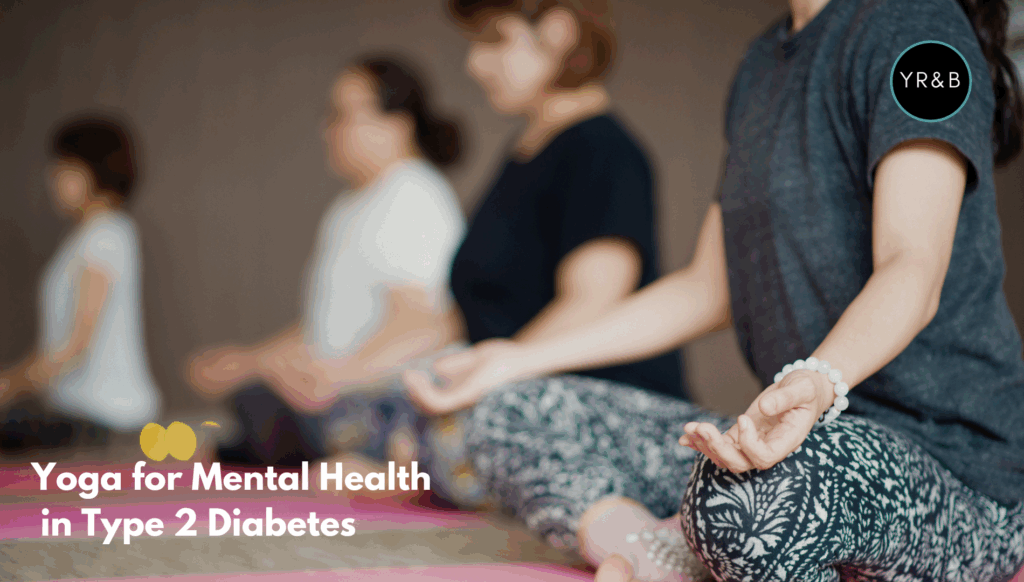What’s This Research About?
This study explores the effects of a yoga program on physical and mental health in adults with type 2 diabetes mellitus (T2DM). Conducted at a diabetes research center in India, it compared yoga plus standard care to standard care alone over six months. While the yoga practice didn’t significantly lower blood sugar markers (HbA1c) compared to the control group, it did improve participants’ mental health, including reduced depression and stress, and better cognitive function and mindfulness. This shows yoga may be a useful complementary practice to support psychological well-being in people managing T2DM.
Highlights:
- Large sample of adults with T2DM were randomly assigned to yoga or standard care.
- Yoga involved structured group practice plus home practice for 12 weeks, then follow-up.
- Main blood sugar control outcome (HbA1c) did not significantly change versus control.
- Mental health measures (depression, stress, cognitive function, mindfulness) improved in the yoga group.
The purpose was to examine whether a structured yoga intervention could improve both physical (blood sugar levels) and mental health (stress, depression, cognitive function) in adults with T2DM, since stress and poor mental health can worsen diabetes outcomes.
Key points:
- T2DM is linked to both physical and mental health burdens.
- Psychological issues like depression and stress can negatively impact diabetes control.
- Yoga is hypothesized to help manage these factors.

TITLE: The Impact of Yoga Intervention on Physical and Mental Health of Adults with Type 2 Diabetes
PUBLICATION: International Journal of Yoga
DATE: April 2025
AUTHORS: Poongothai Subramani, Anjana Ranjit Mohan, Latha Satish, Swetha Karthikeyan, Pavithra Ravi, Venkatesan Ulagamathesan, Viswanathan Kannikan, Mohan Viswanathan
Type 2 diabetes mellitus (T2DM): A chronic health condition where the body has trouble regulating blood sugar (glucose) levels properly. The body either does not make enough insulin, or the cells don’t respond well to insulin (a hormone that helps glucose move from the blood into the body’s cells for energy). As a result, blood sugar stays higher than normal, which over time can damage organs and tissues. It’s linked to genetics, unhealthy eating, physical inactivity, and excess body weight, especially around the abdomen. Stress and poor sleep can also make it worse. It’s the most common form of diabetes (about 90%–95% of all diabetes cases). Unlike type 1 diabetes (which is usually autoimmune and often diagnosed in childhood), type 2 diabetes is more lifestyle-related and typically appears in adults — but is increasingly seen in children and teens.
Prospective randomized controlled trial (RCT): is a type of scientific study used to find out whether a specific treatment or intervention works. It’s considered the “gold standard” for testing something because it helps reduce bias and get reliable results. Prospective means the researchers plan the study in advance and follow the participants forward in time to see what happens. Randomized means people in the study are assigned by chance (randomly) to different groups — for example, one group might do yoga, and another might get standard care. This helps make sure the groups are similar at the start. Controlled means there’s a comparison group (the “control group”). This group does not get the new treatment — so researchers can see if the results are really due to the treatment and not just by chance or other factors.

